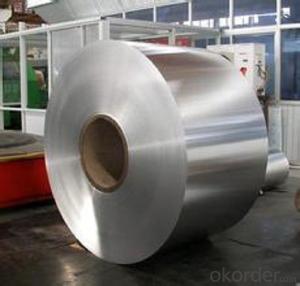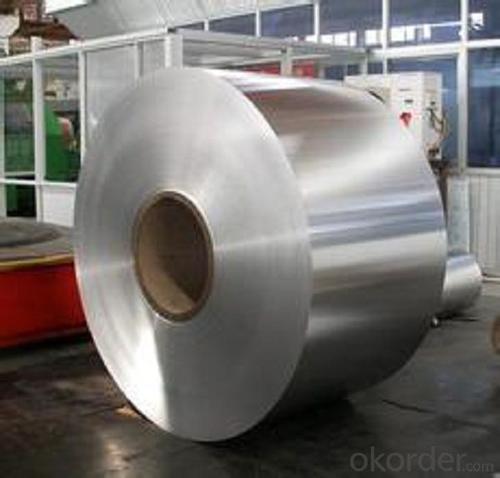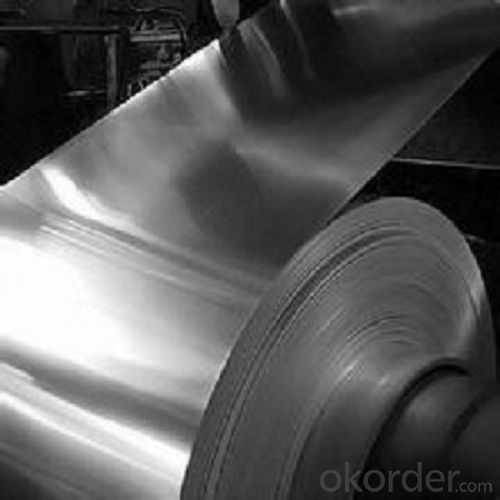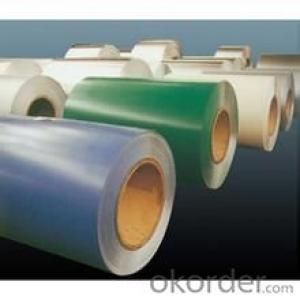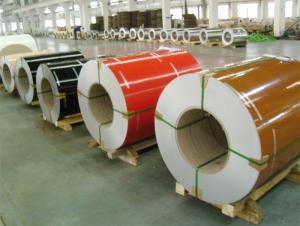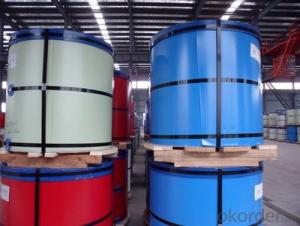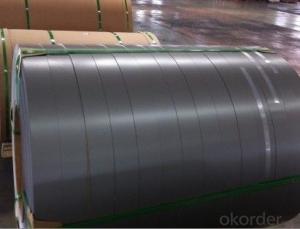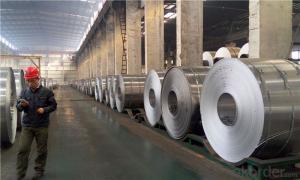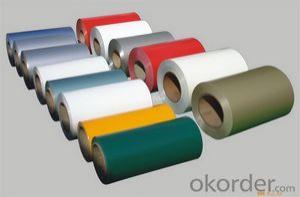Acl Aluminum Coils Todd Rahman 3003 Alloy Anti-Corrosion Insulation Aluminum Coil
- Loading Port:
- Shanghai
- Payment Terms:
- TT OR LC
- Min Order Qty:
- 2.5
- Supply Capability:
- 5000 m.t./month
OKorder Service Pledge
OKorder Financial Service
You Might Also Like
Specification
3003 Alloy Anti-corrosion Insulation Aluminum Coil
lProduct Information
| Aluminum coil | Thickness mm | Width mm | Temper |
| 1050 1060 1070 1100 1200 1235 | 0.2-4.0 | 20-1500 | O H12 H14 H16 H18 H22 H24 H26 |
| 4.0-12.0 | 1500-2200 | H111 H112 | |
| 3003 3004 3A21 3105 | 0.2-4.0 | 20-1500 | O H12 H14 H16 H18 H22 H24 H26 |
| 4.0-12.0 | 1500-2200 | H111 H112 | |
| 5052 5754 5083 5A05 | 0.2-4.0 | 20-1500 | O H12 H14 H16 H18 H22 H24 H26 |
| 4.0-12.0 | 1500-2200 | H111 H112 | |
| 6061 6063 6082 | 0.15-200 | 900-2200 | O-H112 T |
| 8011 8021 8079 | 0.2-4.0 | 20-1500 | O H12 H14 H16 H18 H22 H24 H26 |
| 4.0-12.0 | 1500-2200 | H111 H112 |
lPackaging & Delivery Details
Packaging: Standard seaworthy packing
Delivery: About 25 days after received your advance
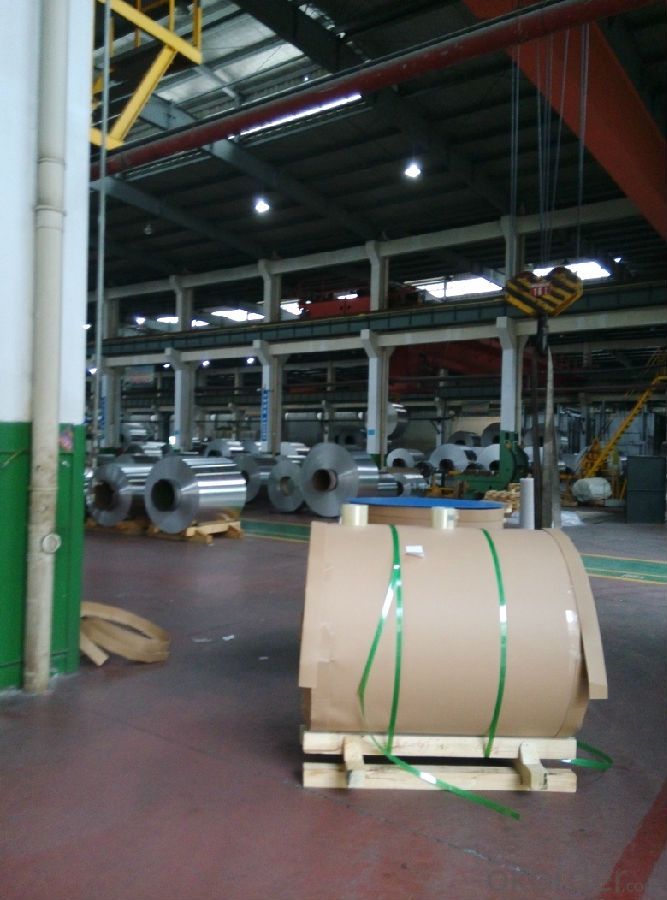
lCompany Profile
CNBM International Corporation, China National Building Materials (Group) Corporation, is one of the largest companies in China building
material & equipment industry, with 42,800 employees and sales in 2005 of US Dollar 4.395 billion. In 2006, China National Building Material Company Limited was listed on Hong Kong Stock Market with the stock code as 3323.
CNBM has been involved in aluminium products for about a decade. With advanced technology and equipment, our products have been sold to the worldwide including America, Europe, as well as South Asia, etc.
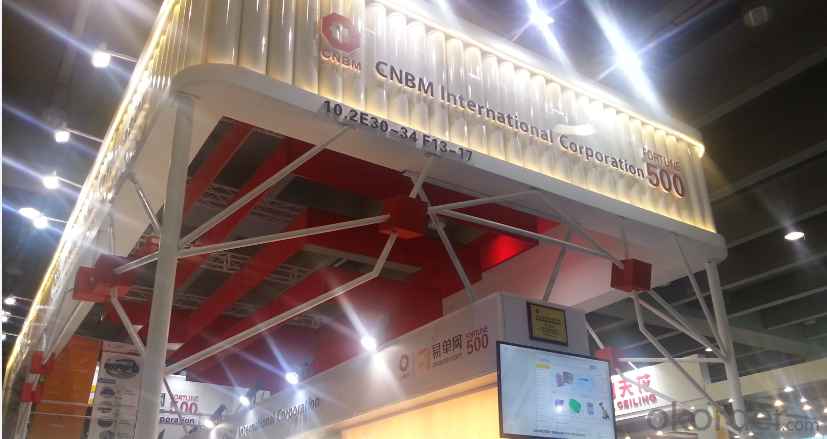
lProduct Images
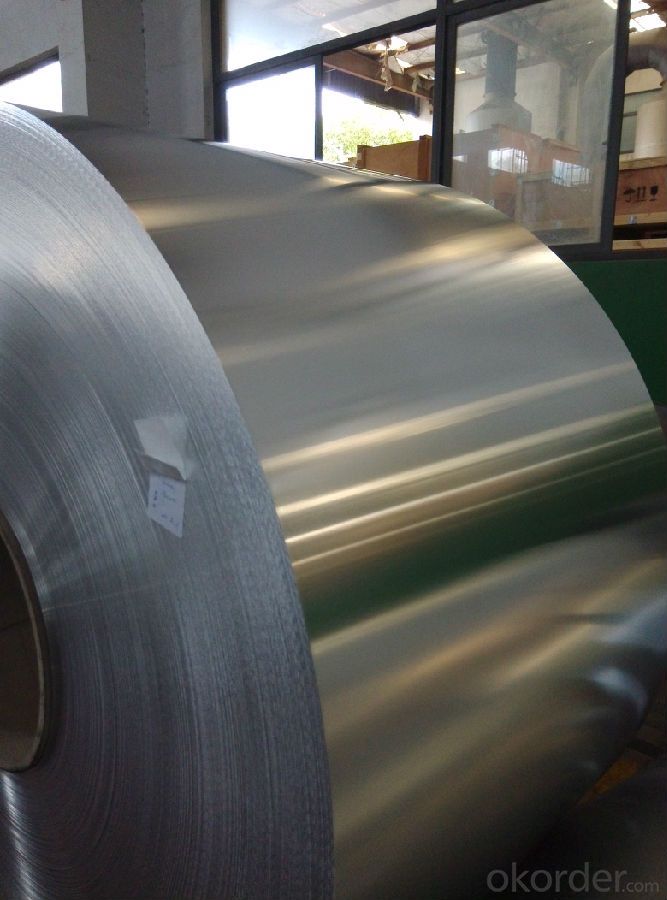
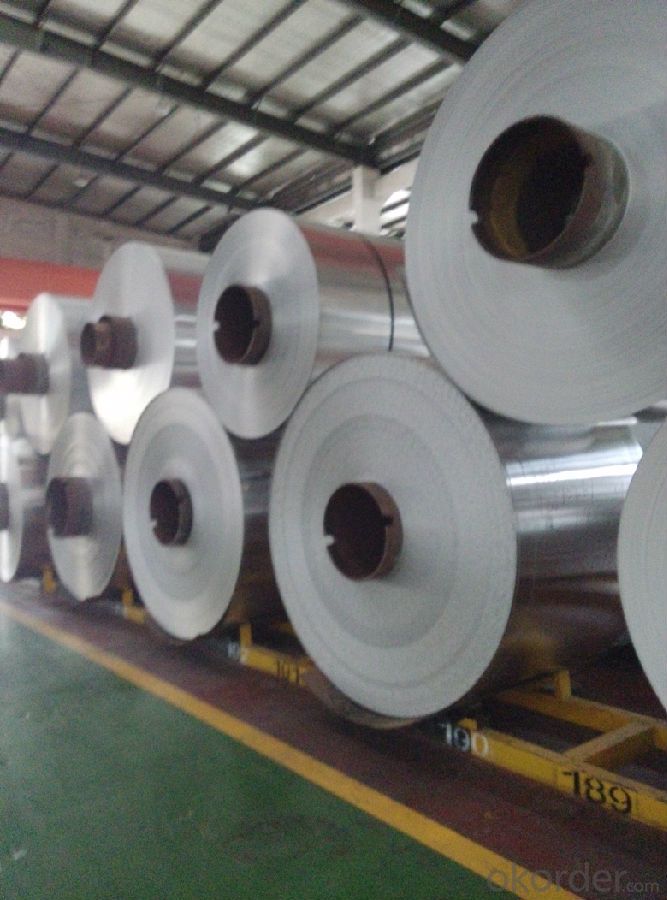
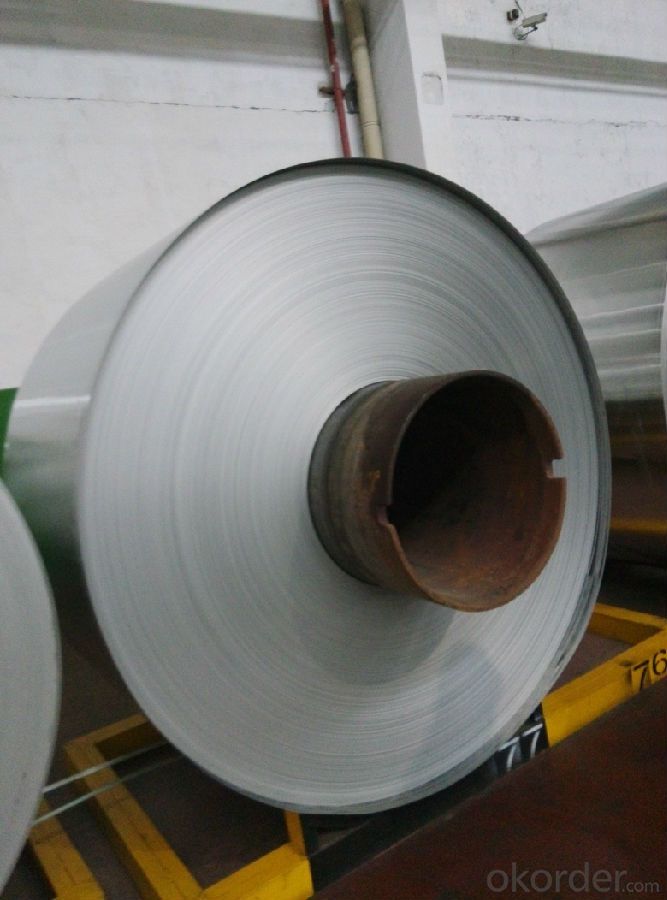
lCertificates
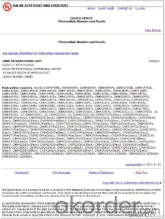
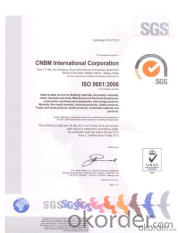
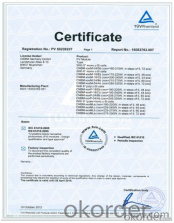
lFAQ
Q: Do you provide free samples?
A: Yes, free samples will be sent to you on freight at destination.
Q: Can I get your latest products catalogue?
A: Yes, it will be sent to you in no time.
Q: What is the MOQ?
A: 2.5 tons
- Q: Are aluminum coils resistant to mold and mildew?
- Yes, aluminum coils are highly resistant to mold and mildew. Aluminum does not provide a favorable environment for mold or mildew growth, making it an excellent choice for applications where moisture and humidity are concerns.
- Q: Is it possible to utilize a punching machine to create holes in steel coils for decorative purposes?
- <p>Yes, you can use a punching machine to punch holes in steel coils for decoration purposes. Punching machines are designed to create precise holes in various materials, including steel. For steel coils, ensure the machine is capable of handling the thickness and hardness of the steel. It's important to select the right punch and die material, and consider the coil's strength and ductility. Always follow safety guidelines and machine specifications to prevent damage or injury.</p>
- Q: Explain the distinctions between cold rolled aluminum coils and hot rolled aluminum coils, focusing on the manufacturing process and resulting properties.
- <p>Cold rolled aluminum coils are produced by rolling aluminum at room temperature, resulting in a smoother surface and tighter dimensional tolerances. They have higher strength and hardness due to cold working. Hot rolled aluminum coils, on the other hand, are rolled at high temperatures, which allows for larger thickness reductions and creates a rougher surface. Hot rolled coils are generally softer and more ductile, with lower strength and hardness compared to cold rolled coils. The choice between the two depends on the specific application requirements for strength, surface finish, and formability.</p>
- Q: Can aluminum coils be used in aerospace heat exchangers?
- Yes, aluminum coils can be used in aerospace heat exchangers. Aluminum is widely used in aerospace applications due to its lightweight and excellent heat transfer properties. It offers good corrosion resistance, high thermal conductivity, and is cost-effective, making it a suitable material for heat exchangers used in aircraft and other aerospace systems.
- Q: What is the common color of aluminum coil membrane?
- The blue transparent membrane is the most common.
- Q: What are the potential health hazards associated with the use of old aluminum coils?
- <p>Using old aluminum coils can pose health risks due to potential leaching of aluminum into food or beverages. Long-term exposure to aluminum may lead to cognitive impairments and neurological issues. Additionally, old coils may have accumulated dirt, bacteria, or other contaminants that could cause infections or digestive problems. It's important to regularly inspect and replace aluminum cookware to ensure safety.</p>
- Q: What benefits can be gained from utilizing aluminum coil insulation in various applications?
- <p>Aluminum coil insulation offers several advantages, including high thermal conductivity, which allows for efficient heat transfer. It is lightweight and corrosion-resistant, making it durable and suitable for various environments. The material is also known for its flexibility, which facilitates easy installation and adaptability to different shapes and sizes. Additionally, aluminum coil insulation has good electrical conductivity, which can be beneficial in applications requiring electromagnetic shielding. Its recyclability contributes to environmental sustainability, reducing waste and promoting green practices.</p>
- Q: I want to make arrows for my bow that making, i have an idea of making a wooden mold and then finding the melting point of aluminum foil and melt it, prob is that i dont have anything to melt it with my moms oven goes up to only 500F and i need one up to 1240F
- The wooden mold will not be able to handle the molten Aluminum. You will need a foundry in order to melt down the aluminum properly, and some shop equipment to cut the arrows out of the mold. It would take an inordinate amount of aluminum foil to make an arrowhead anyway. Typically you want to melt down aluminum that is higher quality (old aluminum doors for instance). Anyway, try taking a class in foundry, it will teach you what you need to know. Do you have such a class in your High School or local community?
- Q: Can aluminum coils be used in coil coating processes?
- Coil coating processes can indeed utilize aluminum coils. In this automated and continuous process, a protective or decorative coating is applied to a metal coil, typically steel or aluminum. The utilization of aluminum coils in this process is widespread due to their exceptional corrosion resistance, lightweight properties, and ease of shaping. Prior to the actual coating application, these aluminum coils undergo several pre-treatment processes, which include cleaning, chemical treatment, and primer application. Once prepared, a diverse range of materials, such as paints, lacquers, and polymers, are applied to the coils to enhance their appearance, durability, and performance. The coil coating process is highly efficient and consistent, making it an optimal choice for various industries, including construction, transportation, and appliances.
- Q: What is the role of aluminum coils in the construction of aircraft?
- The significance and versatility of aluminum coils in aircraft construction cannot be overstated. Aluminum, with its exceptional properties like lightweightness, durability, and resistance to corrosion, is the preferred material for manufacturing aircraft. In particular, aluminum coils find extensive use in various aircraft components such as the fuselage, wings, and structural elements. One of the primary functions of aluminum coils is to impart structural strength while keeping the aircraft lightweight. By incorporating aluminum coils, aircraft manufacturers can effectively reduce the overall weight of the aircraft, leading to improved fuel efficiency and increased payload capacity. This holds immense importance in aviation, where even the slightest reduction in weight can have a substantial impact on performance and operational costs. Furthermore, aluminum coils play a pivotal role in enhancing the aerodynamic design of the aircraft. These coils are employed to shape the wings and other aerodynamic surfaces, enabling superior airflow and decreased drag. The flexibility of aluminum coils empowers engineers to create intricate, curved shapes that optimize the aircraft's aerodynamic performance, resulting in enhanced maneuverability and reduced fuel consumption. Another critical aspect of aluminum coils in aircraft construction is their ability to resist corrosion. Aluminum naturally forms a protective oxide layer when exposed to air, rendering it highly resistant to corrosion. This property proves indispensable in ensuring the aircraft's longevity and structural integrity, especially when subjected to harsh environmental conditions like high altitudes or coastal regions. Moreover, aluminum coils find application in the manufacturing of heat exchangers, crucial components of the aircraft's cooling and ventilation systems. These coils efficiently transfer heat either to or from the air, depending on the requirements of the system, enabling effective temperature control within the aircraft's cabin and engine compartments. In conclusion, the role of aluminum coils in aircraft construction is indispensible. They provide structural strength, contribute to aerodynamic efficiency, offer corrosion resistance, and facilitate efficient heat exchange. The utilization of aluminum coils enables the development of high-performance, reliable, and fuel-efficient aircraft that are essential for modern aviation.
Send your message to us
Acl Aluminum Coils Todd Rahman 3003 Alloy Anti-Corrosion Insulation Aluminum Coil
- Loading Port:
- Shanghai
- Payment Terms:
- TT OR LC
- Min Order Qty:
- 2.5
- Supply Capability:
- 5000 m.t./month
OKorder Service Pledge
OKorder Financial Service
Similar products
Hot products
Hot Searches
Related keywords
